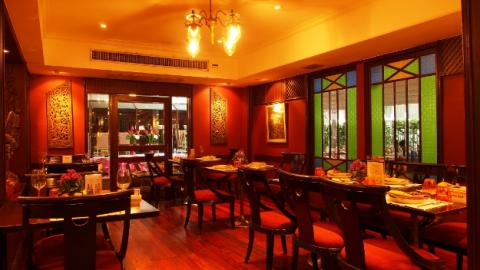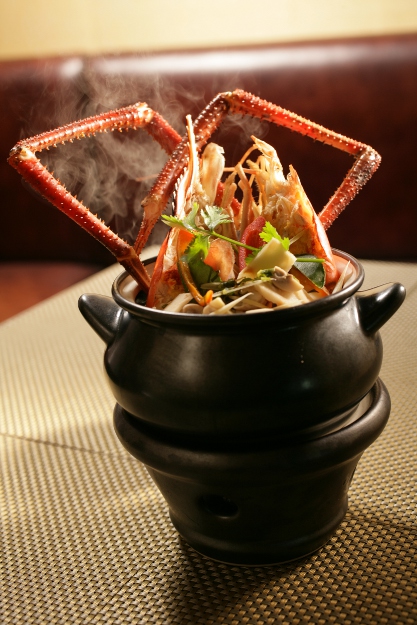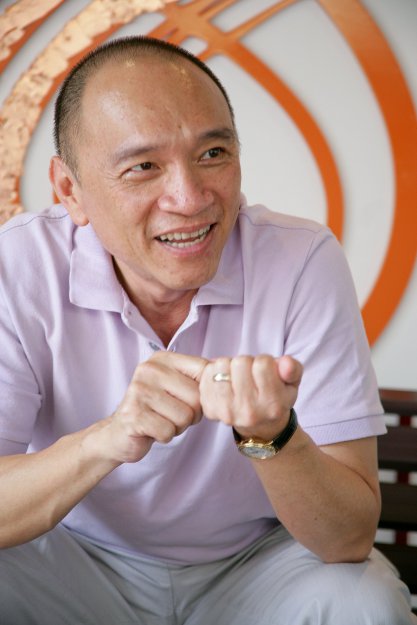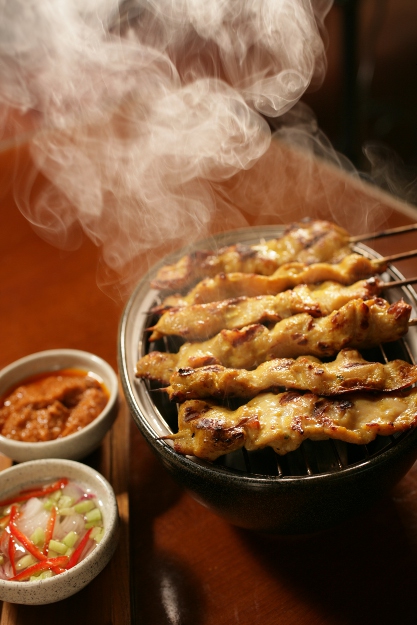Mango Tree: How The Thai Restaurant Plans to Take Over the World

“There's a big boom in Thai food globally, and we aim to be at the vanguard of that boom,” says Pitaya Phanphenonsophon, CEO of Bangkok-based Mango Tree, already considered the world’s biggest Thai restaurant brand.
What Pitaya started in 1994 has grown into 70 locations in 16 countries worldwide, with expectations to double its existing annual turnover to reach US$100 million within two years as it sets it sights on expanding to 100 restaurants by 2015 with further expansion throughout Asia Pacific, and the Middle East, but also China, Australia and, in the United States, their first opening in Washington DC in September. Other US locations being considered include Chicago, Denver, Las Vegas, Miami, and New York, says Pitaya.
“Our success is down to expanding carefully, choosing great partners, having a unique concept, a sound strategy and, above all, a team which believes it itself,” he tells me over a flavorful salad of large, juicy grilled prawns mixed with fragrant lemongrass, yum sauce and fresh greens at Mango Tree’s original restaurant—a beautiful former mansion built during the reign of King Rama IV almost 100 years ago in the Silom section of the Thai capital. The restaurant was named because of a mango tree, which is still there, planted out front.
Pitaya comes from a restaurant family; his parents owned Coco, which still serves Chinese-Thai-style cuisine. But he took a detour into a business he says “was ultimately in my blood.” Born in Bangkok, he went to Vancouver to attend university, studying economics. He wasn’t in any rush to return, but his love affair with Thai food became even stronger during those years away. “Myself and my fellow Asian students missed rice from Thailand. So it all started with a small rice cooker, soya sauce and sweet Chinese sausage. Later, I’d add mushrooms and chicken before moving on to more elaborate recipes.”

But during his studies, his father passed away and Pitaya was called home to take over the family business. At about the same time, the mansion across from Coco became available under the condition that it would keep its original design. Pitaya saw this as an opportunity to branch out.
“When we first started, the goal was to come up with a new concept so it wouldn’t compete with Coco. Thai food wasn’t really as popular back then. So my idea was to make it more home-style cooking with some contemporary twists here and there.” This results in dishes like tom yam scampi, char-grilled rib eye with Isan chili dipping sauces, or Main lobster in a rich yellow curry.
Expanding was, and still is, tricky. “The problem is it’s difficult to copy and paste the concept and standards we have. But who wants just to copy and paste? We aren’t looking to have hundreds of restaurants everywhere like some chains just for the sake of numbers. My vision is to plant a Mango Tree in every major city in the world.”
That has led to some trials and errors, like an initial failure in Shanghai by going in quickly and not lining up partners with the same vision. Or the first opening in London. “We hired a British chef who had top credentials running a restaurant. Soon after, I came into the kitchen one morning and saw him eating one of those British breakfasts of sausages, eggs and beans. I asked, why are you eating that, and he told me he doesn’t like Thai food. He had to go. You can’t work in a restaurant where you don’t enjoy the food you’re cooking.”

But Pitaya is philosophical. “I initially lost quite a bit of money here and there, but I never regretted it. If it doesn’t work, we take it out….Mango Tree was a loss for three years. But I was convinced it would be profitable.”
Though not a certified chef, he spends a lot of time in the kitchen. “I’m not a chef, but I sure am a good cook,” which he also displays in his own cookbook. “Cooks who love what they do make the best food. That’s why I empower our cooks in our restaurants to nourish their passion for what they are doing.”
His four children also play a large role in what is added to menus. “When home, I always cook and they are my guinea pigs. They are the next generation, so it helps me evolve.”
Adding Trevor MacKenzie to the team, another accidental restaurateur, has benefited the business. MacKenzie is managing director, responsible for marketing and expansion, but his previous skills included being a cowboy in Canada’s Rocky Mountains and bartending at night in his native Vancouver. Since then, he has notched up 20 years in the industry. Since teaming up with Pitaya, Mango Tree has won a slew of prestigious awards, including Outstanding Thai Franchise to the World, the Excellent Franchise Leadership Award and others.

“I bought into the vision right away,” says MacKenzie. “Nobody gets a franchise very easily. It’s not about how many outlets we have. It’s about doing quality outlets that survive and keeping the brand name consistent. When it comes to partner selection, it can take up to two years. What I tell them is this is like a second marriage, so please tell your wife that you’re having an affair. Because we are very hands-on. I am very up front; that is the way it must be for us to succeed. I also say if you looking for glamour, forget it. If you are looking for quick money, also forget it.”
For Pitaya the reward is more than the size of a profit. “It’s hard work, but rewarding. Money? I can live with minimal money. I don’t need fancy cars or home. But [what is] most rewarding, you have a brand that is recognized and appreciated. No matter who the customer is, I want them to walk out the door and say ‘wow, I want to come back.’ Then I’ve achieved my reward. That gives me a great feeling no money can buy.”
Highbrow Magazine




























































































































































































































































































































